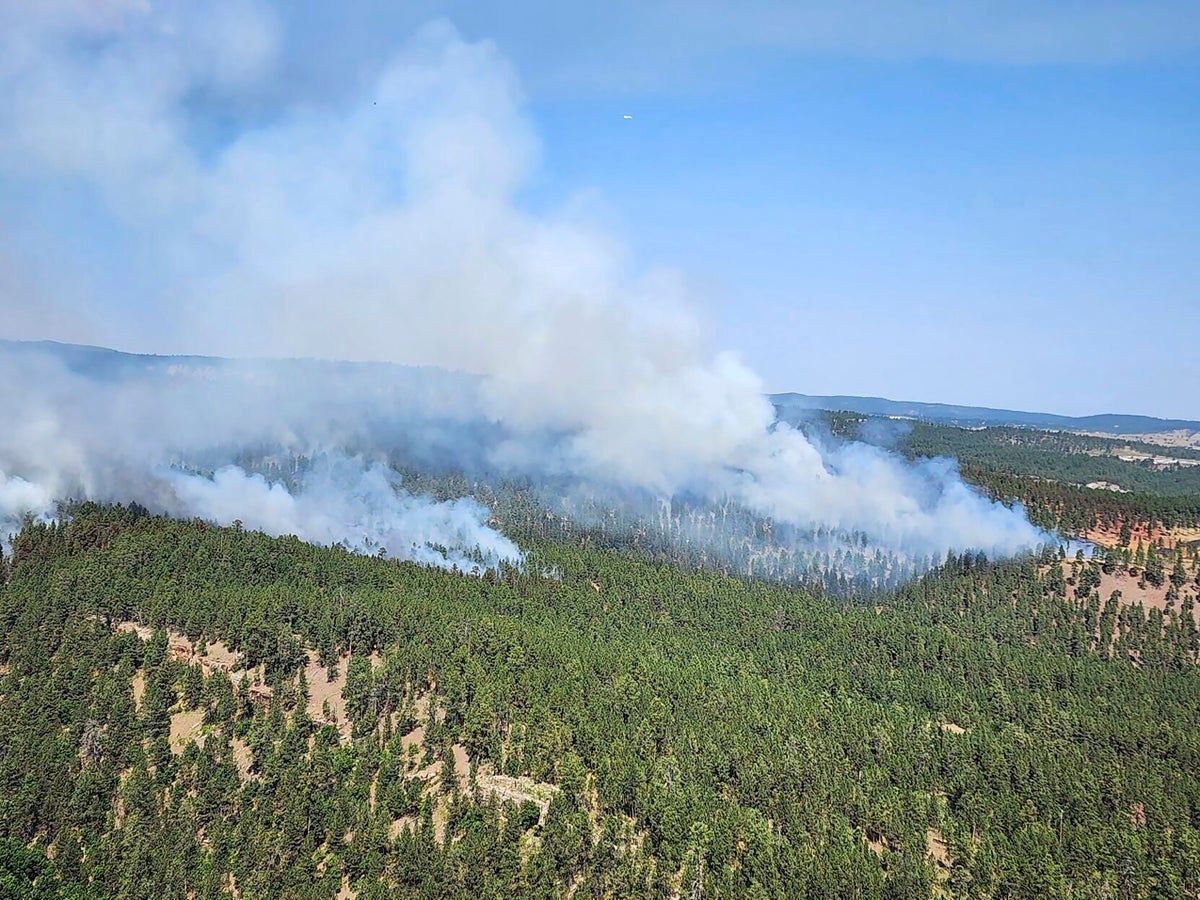
Support truly
independent journalism
Firefighters battling a wildfire near South Dakota's second-largest city caught a big break Wednesday — from the weather.
The First Thunder Fire was reported Monday just a few miles from Rapid City, a community of 80,000 residents near Black Hills National Forest. As late as Tuesday evening, residents in an evacuation warning area were being told to pack their bags, gather vital belongings and be prepared to leave.
The fire burning nearly 160 acres was fueled by uncommonly hot and dry weather — Tuesday's high in Rapid City was 96 degrees Fahrenheit (35.6 Celsius), well above the normal early-September high of 75 (23.9 Celsius). Winds gusted to 45 mph.
By Wednesday morning, the temperature was far cooler, the winds calmer and the air more humid.
“Firefighters got a good handle on the wildfire last night,” an update from the Pennington County Sheriff's Office said. “It’s currently at 157 acres. Weather conditions are very favorable today. They are mopping up a large portion on the west side and are hoping to get everything contained and under control today.”
Officials don't yet know what caused the fire that burned across a steep, rocky area. No structural damage was immediately reported.
Pennington County Fire Administrator Jerome Harvey said those who live in the Rapid City area are in a “red zone,” where wildfires can happen at virtually any time.
“You need to be prepared for that,” Harvey said at a news conference Tuesday. “These kind of events can happen on a year-round basis. There is no longer a defined fire season.”
Rapid City Mayor Jason Salamun on Tuesday had urged residents to gather up key documents such as birth certificates, social security cards and vital financial information, along with priceless photographs and prescriptions.
Residents living near the fire also were urged to come up with a plan for what to do with pets if evacuations are necessary. A Rapid City animal hospital was prepared to take in small animals. For larger animals, a fairgrounds was set up for displaced livestock.







